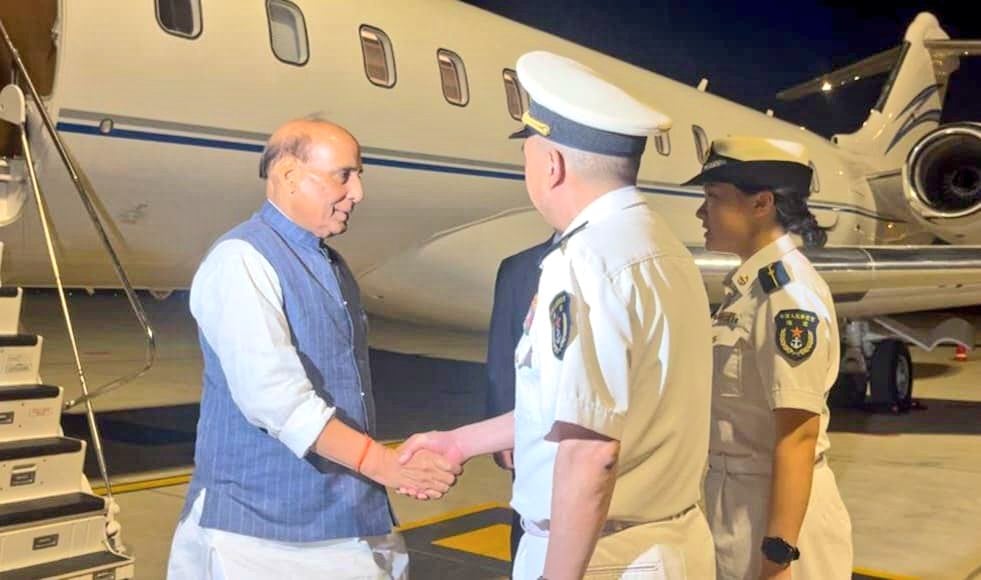India’s Defence Minister Rajnath Singh has arrived in Qingdao, China, to participate in the Shanghai Cooperation Organisation (SCO) Defence Ministers’ meeting scheduled for June 26. The visit holds diplomatic significance as it marks the first high-level engagement between India and China since the landmark October 2024 border agreement that helped de-escalate tensions after the deadly Galwan Valley clash in 2020.
Singh’s agenda at the SCO summit includes promoting India’s strategic outlook on regional peace and stability, reinforcing the need for joint action against terrorism, and calling for enhanced cooperation in trade, economic development, and connectivity among SCO member states.
The SCO, founded in 2001 by China, Russia, Kazakhstan, Kyrgyzstan, Tajikistan, and Uzbekistan, has since expanded to include India and Pakistan. It serves as a multilateral platform aimed at countering Western geopolitical influence in the Eurasian region. The group has held several joint military exercises under the “Peace Mission” framework, most notably the 2007 edition involving more than 4,000 troops.
Singh is also expected to engage in bilateral talks with his counterparts from China and Russia to discuss evolving security dynamics in Asia, including concerns over terrorism, energy security, and military posturing in the Indo-Pacific. These discussions come at a time when India continues to carefully balance its strategic autonomy amid growing global polarization.
Despite recent agreements to maintain peace along the Line of Actual Control (LAC), India remains cautious about China’s long-term intentions. Singh’s presence in Qingdao highlights India’s desire to use diplomatic channels like the SCO to protect its interests while encouraging greater multilateral cooperation.
As the SCO continues to expand its influence in regional security affairs, the outcome of this year’s defence ministers’ summit could shape the trajectory of strategic engagement among key Eurasian powers, particularly in the wake of ongoing conflicts and power realignments.













